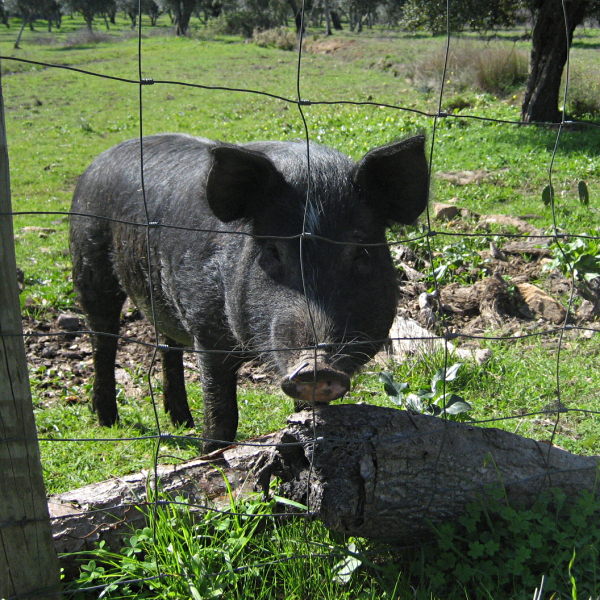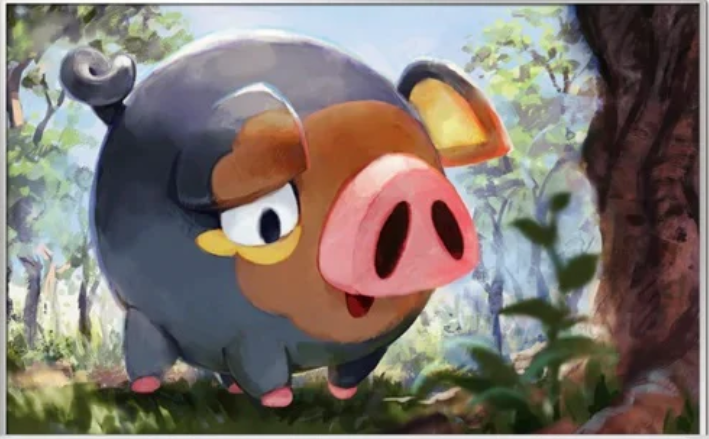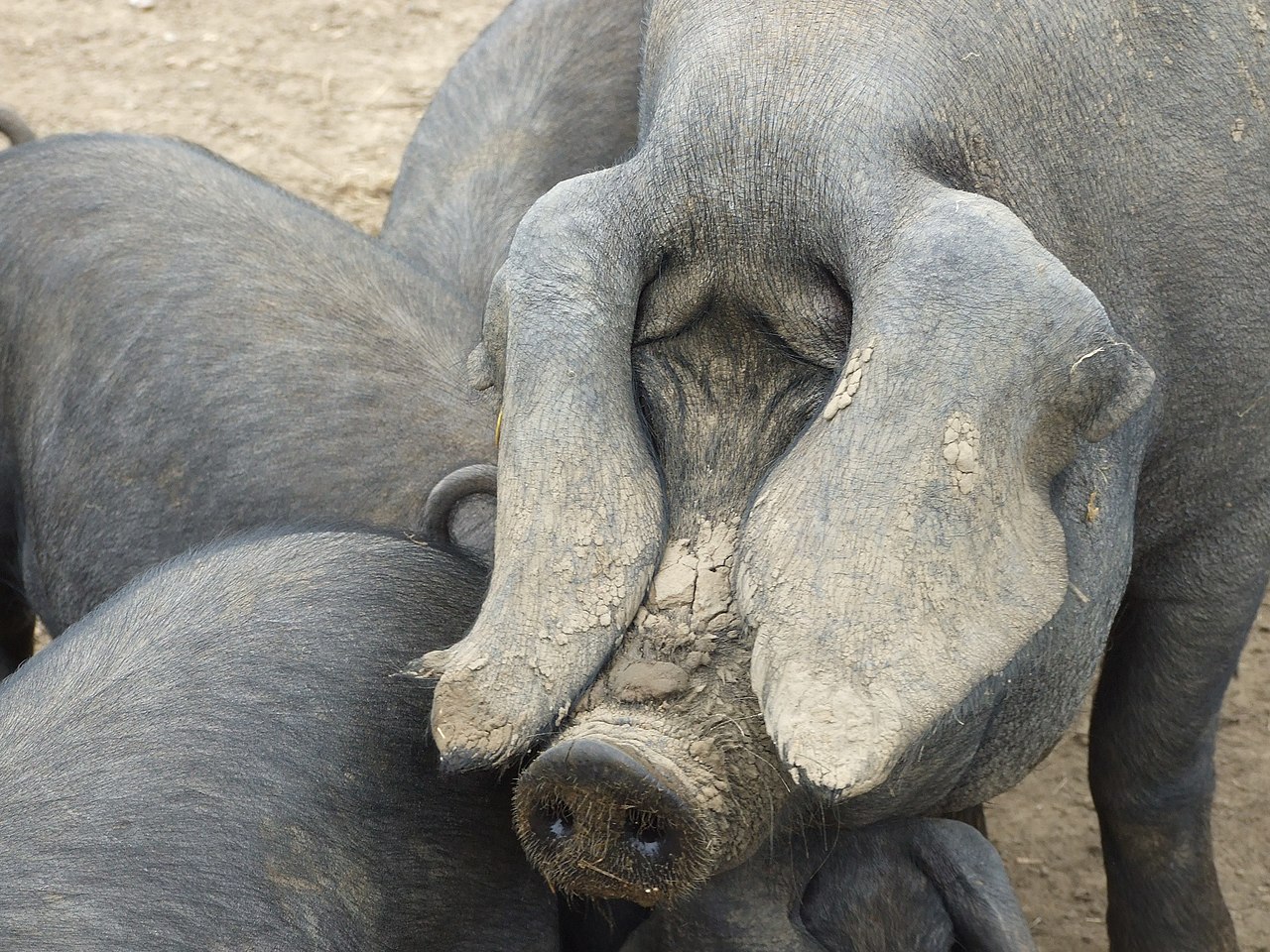Lechonk's Origins
This page is all about the origins for Lechonk's concept, design, and name. Most of this information is speculative, since the Pokémon company has never officially stated what Lechonk's concept is based off of.
Concept
 (image from Wikipedia)
(image from Wikipedia)
Lechonk is clearly based on a pig, most likely on a baby Black Iberian pig. These pigs are native to Spain, the country that Paldea (Lechonk's habitat) is based on. They're also black in color, have a large appetite, and consume a diet primarily of fruits and nuts. This gives them a rotund physique, like Lechonk.
Descriptions of Lechonk as a "gourmand" that sniffs for the most fragrant of foods is likely a nod to truffle hogs, pigs that are trained to sniff out rare delicacies, like truffles, and dig them out of the ground. Pigs have a natural inclination to root in the earth for food, and they have an incredibly accute sense of smell (just like Lechonk!) Its affiliation with truffle hogs is why I included mushrooms and chocolate truffle balls in the banner illustration!
Design
 (image from TCG collects)
(image from TCG collects)
With these inspirations in place, Pokémon's official designers set out to create a cute, first-stage, normal type baby pig pokémon with a round shape and accute smell for food!
They definitely succeeded. Lechonk's down-to-earth black-brown color scheme is fitting for a normal type pokémon, and gives him a grounded, sincere vibe. The pink and yellow highlights add a playful and sunny attitude. His round shape and wide eyes are very cute and makes him appear friendly and unassuming. Very approachable, and just what you would expect for a low level pokémon you can find and befriend early in the game.
Lechonk's primary design quality is its use of exaggerated shape language. Its entire body is a thick round ball, with a bright pink triangle shaped nose! How adorable! Pokémon's design philosophy as a whole revolves on using minimal, strategically placed shapes that create an engaging and distinctive silhouette. Lechonk is a great example of that!
 (image from Wikipedia)
(image from Wikipedia)
Lechonk's ears are shaped like fat teardrops, and they flop over to cover half of Lechonk's eyes. Large Black Pigs have long, floppy ears that can sometimes cover their eyes. I think this was the inspiration for Lechonk's floppy ears, which is played up even further in its evolution.
The floppy ears are a very endearing quality of Lechonk's, and give its design more personality and charm. It can convey a timid and docile nature by hiding its eyes, or a more serious and reserved tone since we cannot fully see its eye's expression.
Name
Pokémon names typically use catchy, charming and clever etymology to create a name that is memorable and fitting for their respective pocket monster. Lechonk is no exception!
Lechonk's name comes from the combination of:
- Lechon
Spanish for "piglet", or a Spanish dish called "suckling pig" - Chonk
Internet slang for fat or chunky
The novelty and charm of Lechonk's name is one of the main qualities that captured the hearts of fans. It is certainly something I love about the little guy! The fact they seamlessly incorporated the word "chonk" into an official pokémon name is so fun to me.
The possibility of "Lechon" being used to refer to a Spanish dish "suckling pig", a roasted piglet served with an apple in its mouth, did break my heart when I first learned about it. But I was very relieved to learn that "Lechón" can also be used to refer to a regular little piglet, no roasting involved! So I'm crossing my fingers this was the inspiration behind the name Lechonk, not the dish. Lechonk doesn't deserve to be named after something like that.
Here are Lechonk's names in different languages:
- Japanese: グルトン (Gourton)
Gourmet + Glutton + 豚 ton (pig) - French: Gourmelet
Gourmet + Porcelet (piglet, typically referring to pork) - German: Ferkuli
Ferkel (pig) + Kulinarisch (cullinary) - Korean: 맛보돈 (Matbodon)
맛보다 matboda (to taste) + 돈 (豚) don (pig)